Introduction
Composite decking has surged in popularity over the past few decades, transforming outdoor spaces into stylish and functional areas for relaxation and entertainment. Homeowners are increasingly asking themselves, Is composite decking worth it? With its unique blend of materials, composite wood offers a durable alternative to traditional wood decking that promises longevity and minimal maintenance. As we delve into this topic, we'll explore key factors that influence the decision-making process for potential buyers.
The Rise of Composite Decking
The rise of composite decking can be attributed to its ability to combine aesthetics with performance, making it a preferred choice for many homeowners looking for durable decking solutions. Unlike traditional wood, which can warp or splinter over time, deck composite decking is engineered to withstand the elements while maintaining its appearance. This evolution in outdoor living spaces has led to an increased demand for innovative materials like PVC decking and composite wood.
Key Factors to Consider
When considering whether composite decking is right for your home, several factors come into play that may sway your decision. First and foremost is the cost—initial investment versus long-term savings are crucial aspects that need careful evaluation. Additionally, understanding the differences in maintenance requirements between traditional wood and composite options will help you make an informed choice about your deck composite decking installation.
Myths vs. Facts about Composite Decking
As with any product gaining traction in the market, misconceptions often cloud judgment regarding composite decking's true value. Many people mistakenly believe that all composites are created equal or assume they require no upkeep at all; however, these myths can lead to poor decisions when selecting durable decking options. By separating fact from fiction about composite wood products, homeowners can better appreciate what makes this material a worthy investment.
Understanding Composite Decking
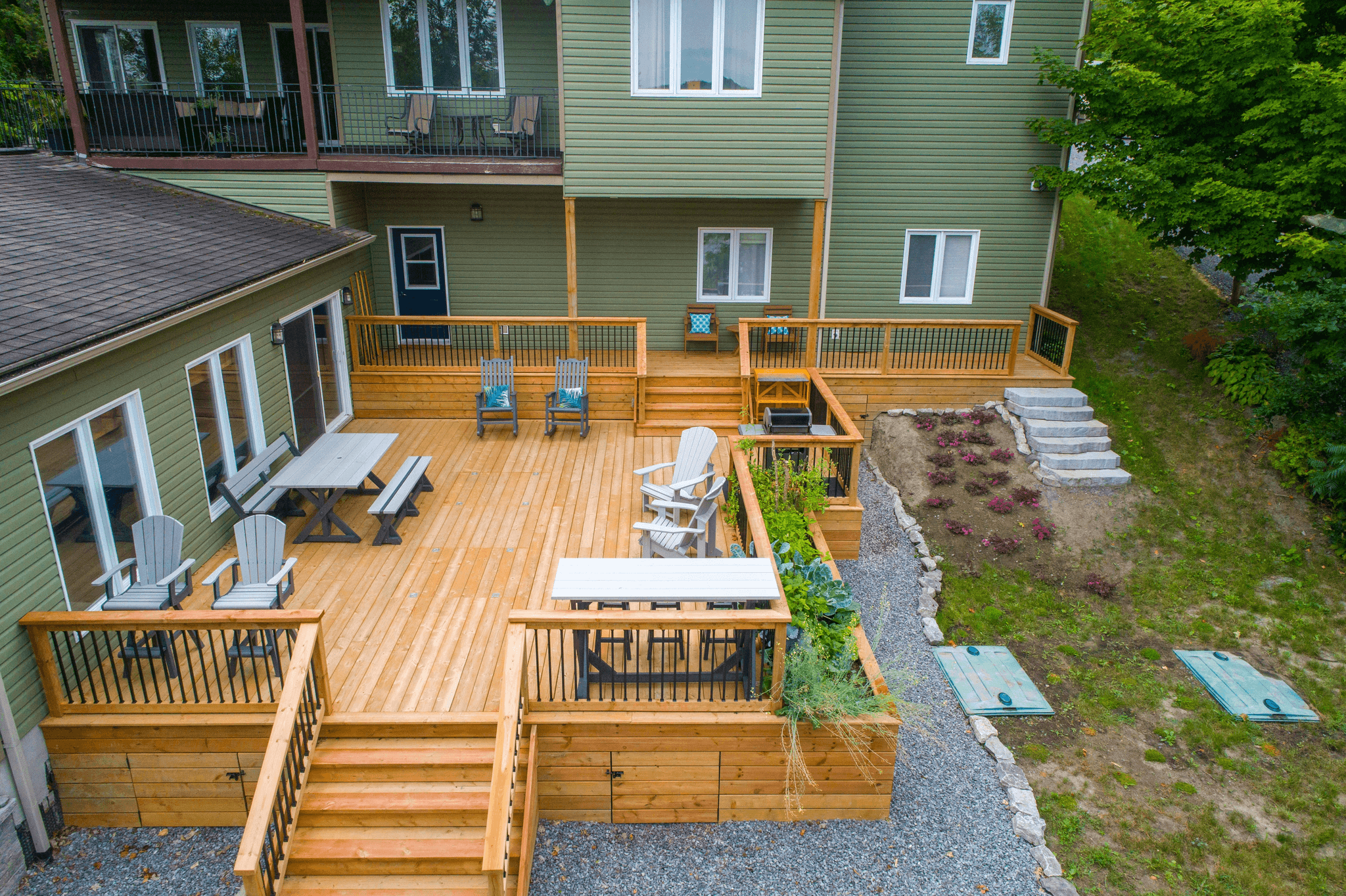
Composite decking has become a popular choice for homeowners looking to enhance their outdoor spaces. But what exactly is composite decking, and why has it gained such traction? Let’s dive into the details to uncover its essence and benefits.
What is Composite Decking?
Composite decking is an innovative material made from a blend of wood fibers and recycled plastic, creating a deck composite that mimics the appearance of traditional wood without many of its drawbacks. This unique combination results in durable decking that resists fading, splintering, and warping—issues often associated with natural wood. With various styles and colors available, composite decking offers an appealing aesthetic while providing long-lasting performance.
Benefits Compared to Traditional Wood
The benefits of composite wood over traditional wood are numerous and compelling. First off, composite decking requires significantly less maintenance than wood; no need for regular staining or sealing! Additionally, because it's resistant to mold and insects, you can enjoy your outdoor space without worrying about rot or pest damage—making it an attractive alternative if you're looking for durable decking solutions that stand the test of time.
Cost Analysis of Composite Decking
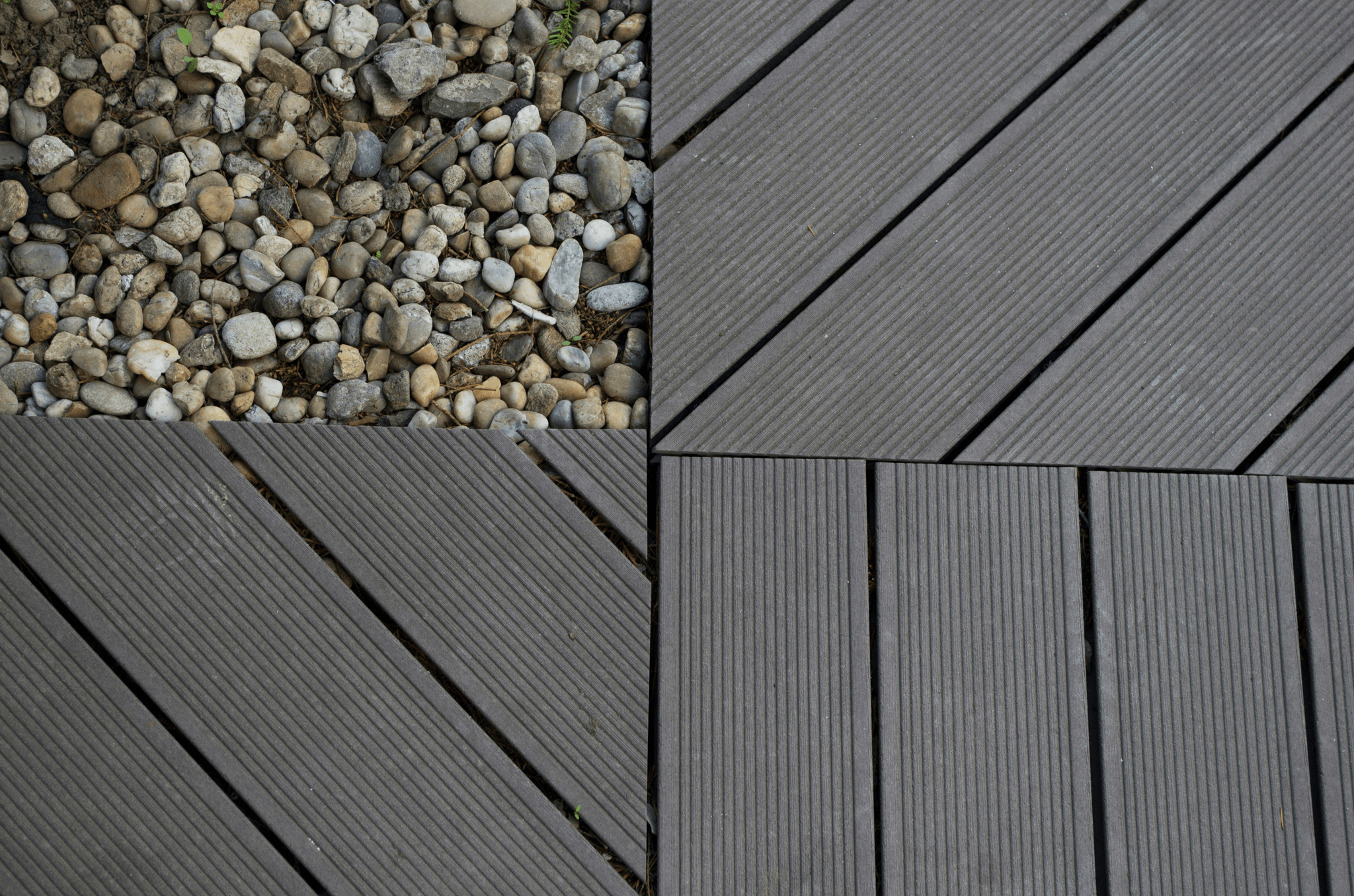
Initial Investment vs. Long-Term Savings
The initial investment for composite decking can be higher than that of traditional wood options. However, this upfront cost often pays off in the long run due to lower maintenance and replacement needs. With durable decking like composite wood or PVC decking, you might find yourself spending less over time on repairs and upkeep compared to traditional materials that require frequent staining or sealing.
Choosing composite decking installation means fewer headaches related to maintenance; you won’t need to sand, stain, or paint your deck every few years. Over time, these savings can add up significantly, making it clear that while the sticker price may be higher initially, the long-term benefits speak volumes about whether is composite decking worth it for your home. Think of it as an investment in convenience and durability rather than just a purchase.
Comparing Brands: Trex vs. TimberTech vs. Composite Decking Inc
When diving into the world of composite decking, three names often come up: Trex, TimberTech, and Composite Decking Inc. Each brand offers unique features and benefits that cater to different preferences and budgets within the realm of durable decking solutions. Trex is known for its wide range of colors and textures while TimberTech boasts superior aesthetics with more natural wood-like finishes; both are solid contenders when considering if composite decking is worth it.
Composite Decking Inc presents another alternative with competitive pricing and eco-friendly materials that appeal to environmentally-conscious consumers looking for sustainable options in their deck choices. While comparing these brands, consider not just their products but also customer service reputation—because who wants a headache after investing in a new deck? Ultimately, evaluating each option's pros and cons will help you determine which brand aligns best with your vision for your outdoor space.
The Hidden Costs of Traditional Decking
Traditional wood decks often come with hidden costs that can take homeowners by surprise—think rotting boards or splintered surfaces requiring urgent attention! Maintenance expenses pile up quickly when you factor in regular staining or sealing every couple of years plus potential repairs from weather damage or pests like termites looking for a tasty treat in your wooden structure. The reality check here is that what seems cheaper at first glance may turn out costly over time.
In contrast to durable options like composite wood or PVC decking—which typically require minimal upkeep—traditional materials can lead you down an expensive rabbit hole filled with unexpected repairs and replacements throughout their lifespan. When weighing your choices between traditional wood decks versus modern alternatives like deck composite decking solutions—consider not only immediate costs but also those lurking expenses waiting around the corner!
Maintenance: The Real Deal
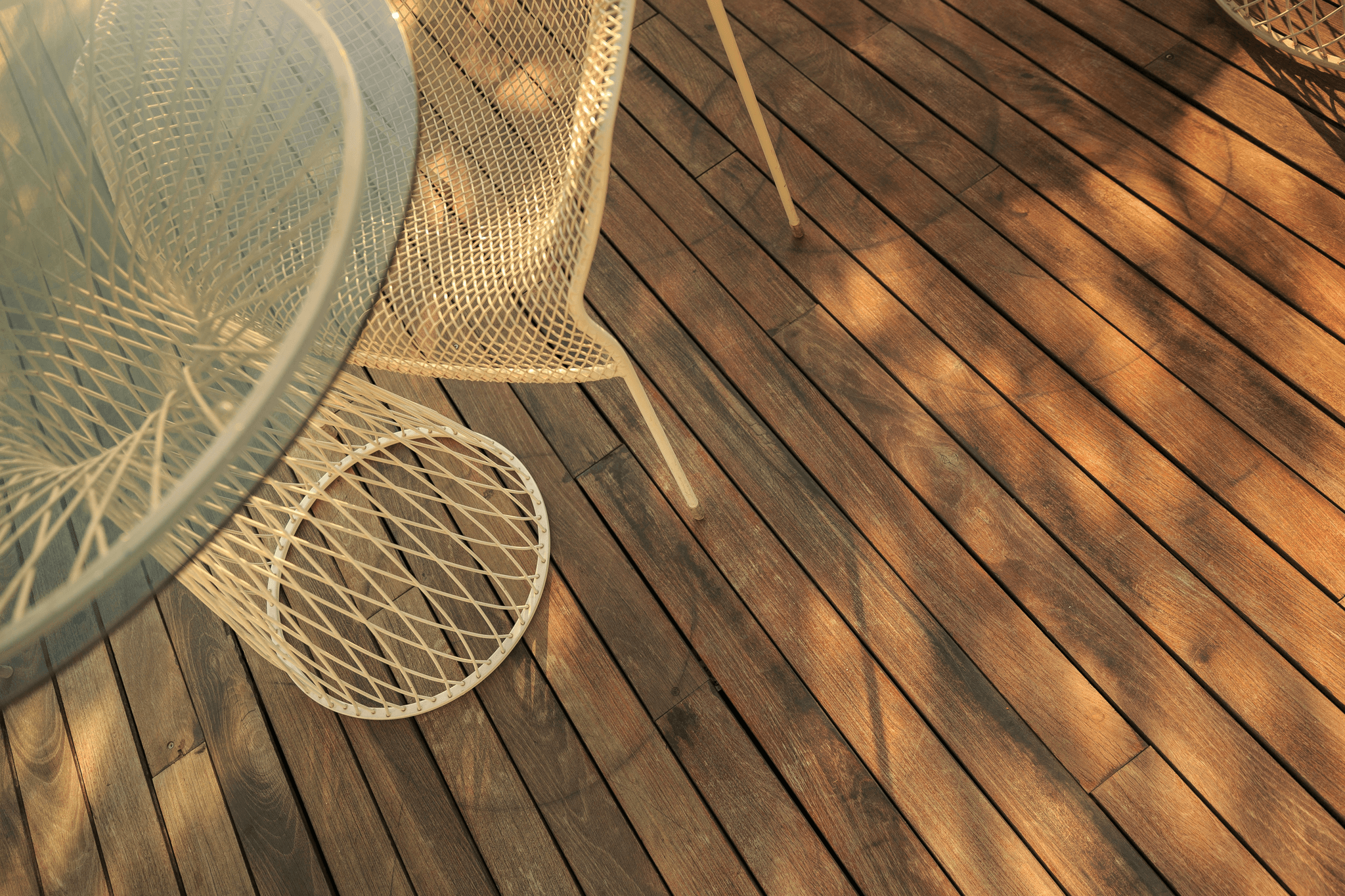
When it comes to maintenance, many homeowners wonder just how much effort composite decking requires compared to traditional wood. One of the significant advantages of composite decking is its low-maintenance nature, which is a game-changer for busy families or anyone who prefers enjoying their outdoor space rather than constantly working on it. While some cleaning is necessary—like hosing off dirt or debris—there’s no need for regular staining or sealing, making composite wood a hassle-free option.
How Much Maintenance is Required?
Composite decking typically requires minimal upkeep, which is one of its most appealing features. A simple wash with soap and water a couple of times a year usually suffices to keep your deck looking pristine. Unlike traditional wood that demands annual treatments with sealants or stains, durable decking options like PVC decking and other composite materials are designed to withstand the elements without extensive care.
Comparing Composite Decking to Wood
When you stack composite decking against wood, the differences in maintenance become even more apparent. Traditional wooden decks often suffer from issues like splintering and rotting over time, requiring costly repairs and frequent upkeep. In contrast, deck composite decking not only resists these problems but also maintains its aesthetic appeal without the need for constant attention—making it clear that if you’re asking yourself “is composite decking worth it?” the answer leans heavily towards yes.
Longevity and Durability Considerations
Longevity is another area where composite decking shines brightly compared to its wooden counterparts. Most high-quality composites are engineered to last 25 years or more without significant deterioration, while traditional wood may require replacement after just 10-15 years due to weather damage and wear. This durability means that investing in composite materials can save you money in the long run—not just on maintenance but also on potential replacement costs down the line.
Environmental Impact
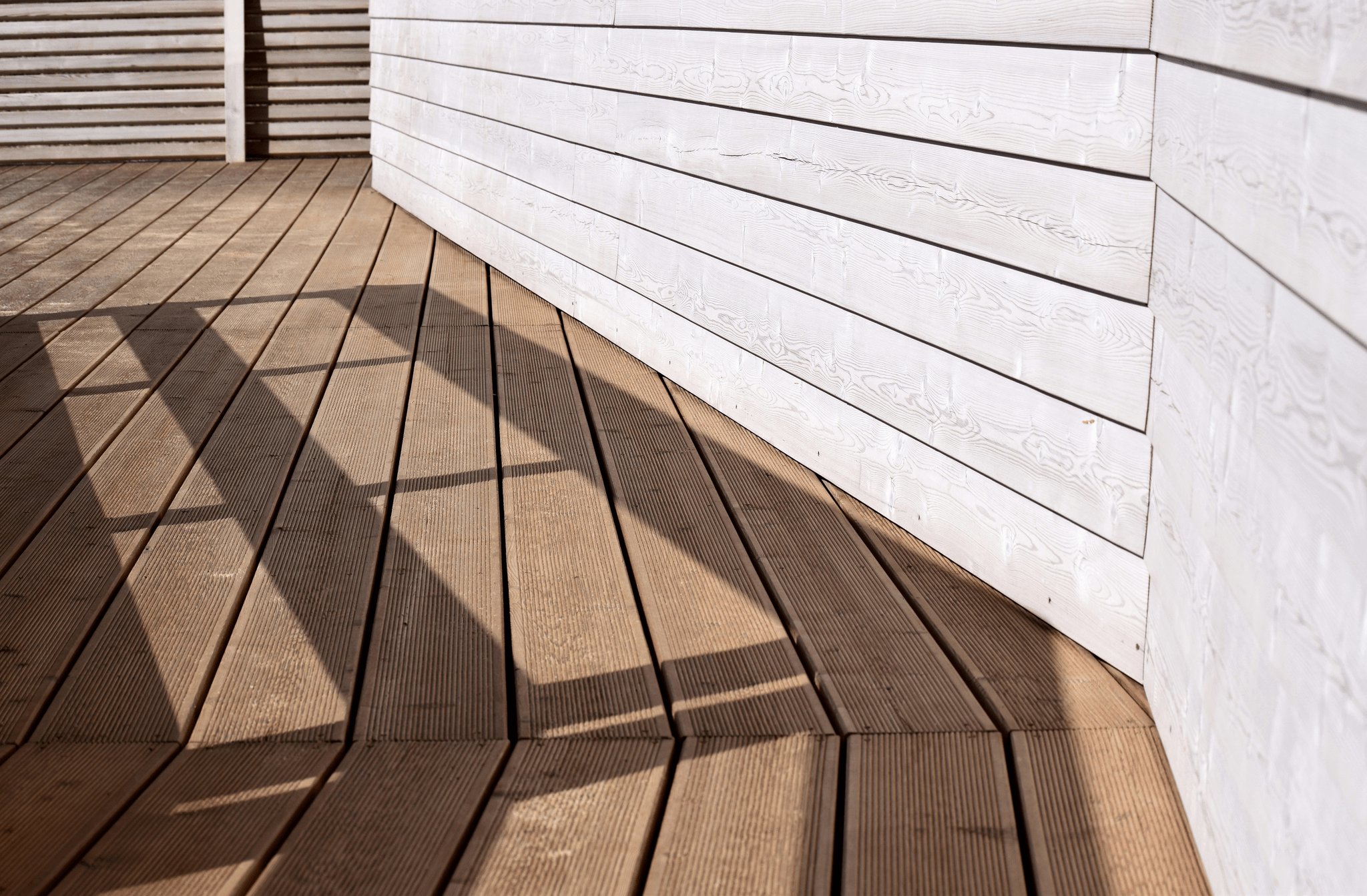
When it comes to the environmental footprint of outdoor living spaces, composite decking has carved out a niche that often raises eyebrows. Many homeowners wonder whether composite decking is worth it from an ecological standpoint. The good news is that most composite wood products are made from recycled materials, making them a more sustainable choice compared to traditional wood options.
Are Composite Decks Eco-Friendly?
The question of whether composite decks are eco-friendly is a hot topic among homeowners considering deck composite decking options. Unlike traditional lumber, which requires the cutting down of trees, many brands produce their composite decking using recycled plastics and wood fibers. This not only helps reduce waste but also minimizes the demand for new timber, making it a more environmentally friendly choice in the long run.
However, not all composites are created equal; some may contain PVC decking components that could have different environmental implications. When evaluating if composite decking is worth it for your home, consider both the materials used and the manufacturing processes involved. Ultimately, choosing high-quality brands committed to sustainability can amplify the eco-friendliness of your new durable decking.
Sustainability Practices by Leading Brands
Leading brands in the composite decking industry have adopted various sustainability practices to ensure their products are as green as possible. For instance, companies like Trex and TimberTech focus on using reclaimed wood and recycled plastic in their manufacturing processes. By prioritizing these sustainable materials and investing in energy-efficient production methods, they significantly reduce their overall carbon footprint.
Moreover, these brands often engage in reforestation efforts or partnerships with environmental organizations to offset any impact they might have on natural resources. When considering deck composite decking options for your home, it's essential to look at how each brand approaches sustainability—after all, is composite decking worth it if it's not contributing positively to our planet?
The Role of Composite Decking Inc in Sustainability
Composite Decking Inc stands out as a leader in promoting sustainability within the industry by emphasizing eco-friendly practices throughout its operations. They utilize innovative recycling techniques that transform waste into high-quality materials suitable for durable decking solutions. This commitment ensures that each board you install contributes less waste to landfills while providing lasting beauty and performance.
Additionally, Composite Decking Inc actively participates in community initiatives aimed at raising awareness about sustainable building practices and responsible consumption of resources. Their dedication not only enhances their product offerings but also reinforces why many homeowners find themselves asking if composite decking is worth it—because every choice made can lead toward a greener future.
Customer Testimonials and Experiences
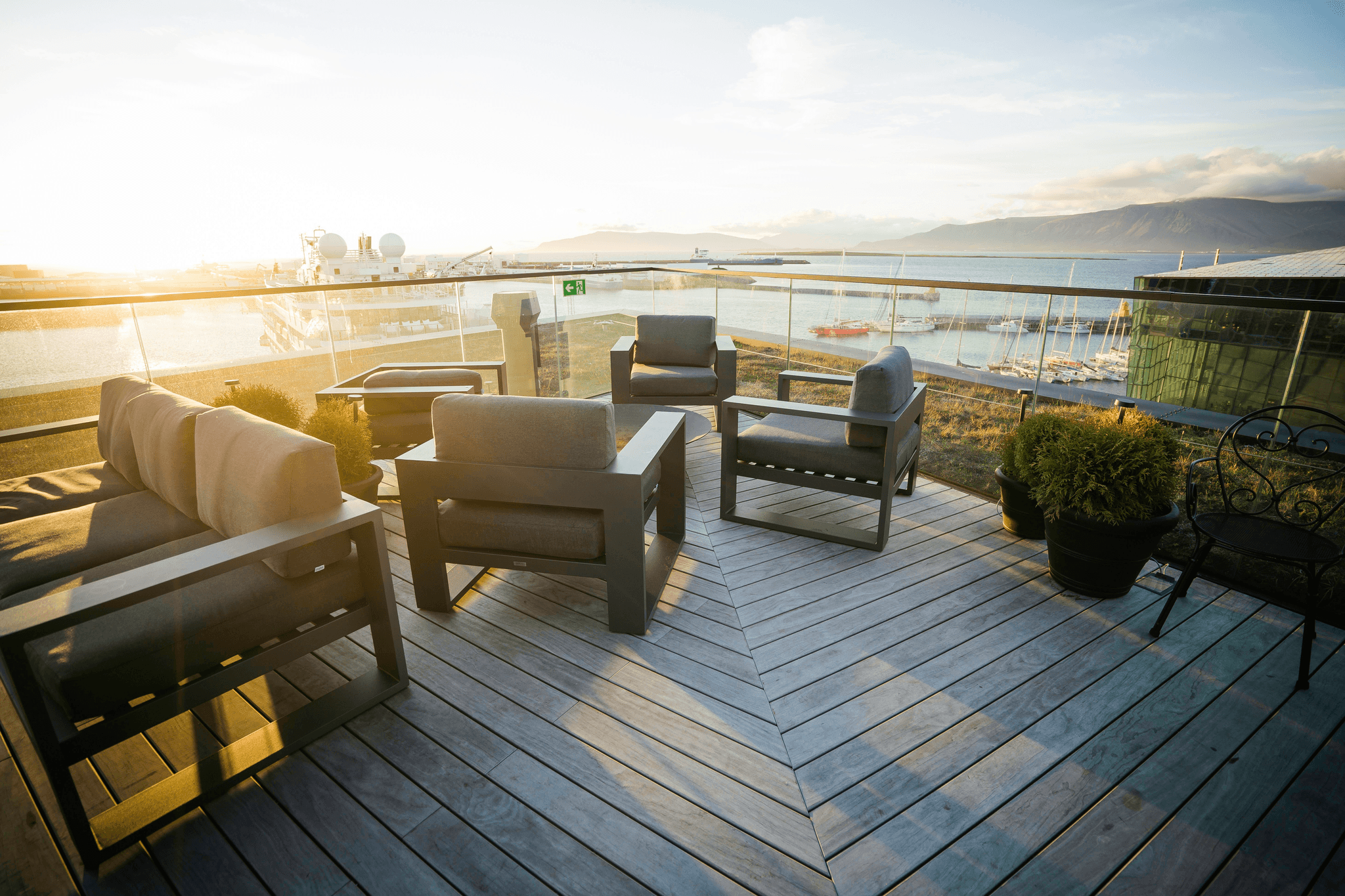
When it comes to making a decision about your outdoor space, nothing beats hearing from those who have already taken the plunge into composite decking. Homeowners and builders alike share their experiences, shedding light on the real-world implications of choosing composite wood over traditional options. So, is composite decking worth it? Let’s dive into the stories that will help you make an informed choice.
Real-Life Stories from Homeowners
Many homeowners rave about their composite decking installations, often highlighting its durability and low maintenance as key factors in their satisfaction. One homeowner in Florida shared how their deck has withstood harsh weather conditions without warping or fading, proving that durable decking can indeed stand the test of time. Another couple in California mentioned they love hosting gatherings on their deck composite decking because it's not only visually appealing but also easy to clean—no more scrubbing away at stubborn stains like with traditional wood!
Professional Insights from Builders
Builders frequently recommend composite decking for its ease of installation and long-term benefits. A contractor noted that while initial costs might be higher than traditional wood, the time saved on maintenance makes it a smarter investment for homeowners looking for lasting value. Additionally, builders appreciate that products like PVC decking offer flexibility in design without compromising durability, allowing them to create stunning outdoor spaces tailored to each client's vision.
Common Complaints and How They Are Addressed
Despite its many advantages, some common complaints about composite decking do arise among users. A few homeowners have reported issues with fading colors over time; however, leading brands are continuously improving formulations to enhance color retention and UV resistance. Others express concerns about slipping during wet weather; manufacturers have addressed this by incorporating textured surfaces into their designs for added safety—a perfect example of how feedback can lead to better products.
Conclusion
As we wrap up this exploration of composite decking, it’s clear that weighing the costs and benefits is essential for any homeowner considering an upgrade. Composite decking offers a blend of durability, low maintenance, and aesthetic appeal that can outweigh the initial investment. However, it’s also crucial to consider personal preferences and long-term goals when deciding if composite wood is the right fit for your outdoor space.
Weighing the Costs and Benefits
When evaluating whether composite decking is worth it, start by taking a closer look at both the upfront costs and potential savings over time. While the initial price tag may be higher than traditional wood options, durable decking materials often require less maintenance and replacement over their lifespan. This factor can lead to significant savings on upkeep, making composite decking an attractive option for many homeowners.
Additionally, comparing brands like Trex and TimberTech reveals variations in quality and features that can influence your decision. Each brand has its unique offerings in terms of aesthetics, warranties, and eco-friendly practices. Ultimately, understanding these differences will help you make an informed choice about which deck composite decking aligns best with your needs.
Is Composite Decking Worth It?
The question of whether composite decking is worth it boils down to individual priorities—style preferences, environmental considerations, and lifestyle choices all play a role. If you value low-maintenance living without sacrificing beauty or performance, then investing in PVC decking could be a game-changer for your home. Many homeowners find that after experiencing the benefits firsthand—like no splinters or fading—they wholeheartedly endorse their decision to switch from traditional wood.
Moreover, customer testimonials often highlight satisfaction with how well composite materials stand up against harsh weather conditions compared to their wooden counterparts. The longevity of these products means fewer replacements over time; thus reinforcing their value proposition in outdoor living spaces. In essence, if you seek a hassle-free solution with stunning results year after year, then yes—composite decking is indeed worth considering.
Making the Right Choice for Your Home
Choosing between different types of decking can feel overwhelming given all the options available today; however, focusing on what matters most to you will simplify this process significantly. Consider factors such as design preferences, budget constraints, maintenance requirements—and don’t forget about sustainability if that’s important to you! The right selection will not only enhance your outdoor space but also reflect your values as a homeowner.
In conclusion, whether opting for durable composite wood or exploring other alternatives like PVC decking hinges on what fits best with your lifestyle needs and aesthetic desires. Take some time to research various brands while keeping an eye out for innovative features they offer during installation processes too! Ultimately making an informed decision will lead you toward creating an inviting outdoor oasis tailored just for you.
